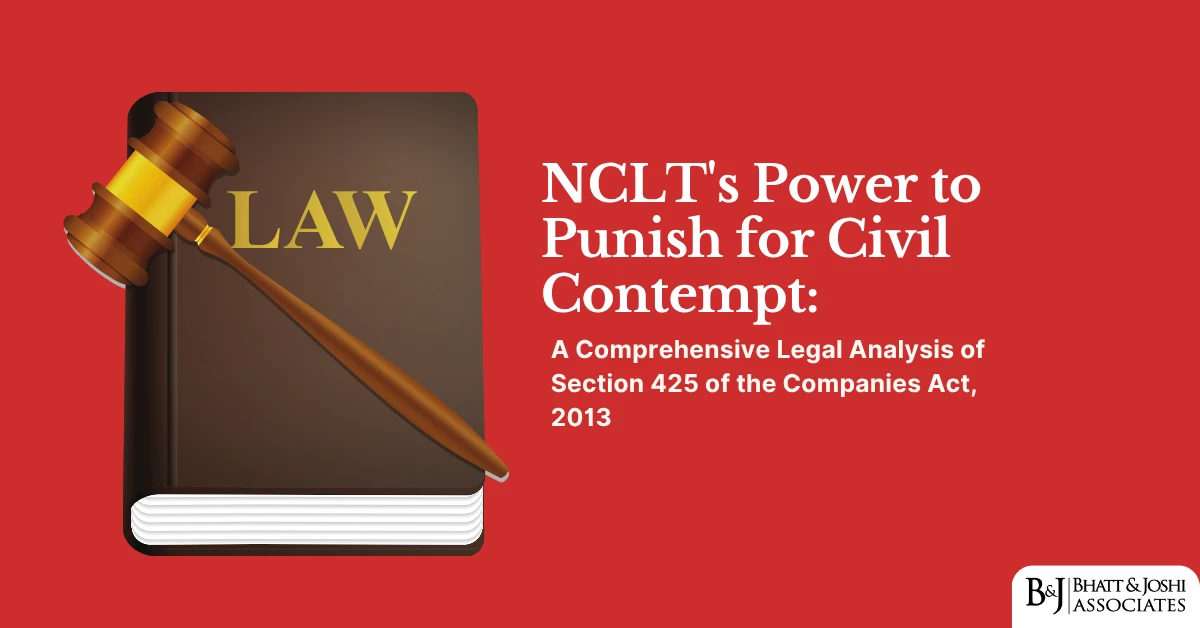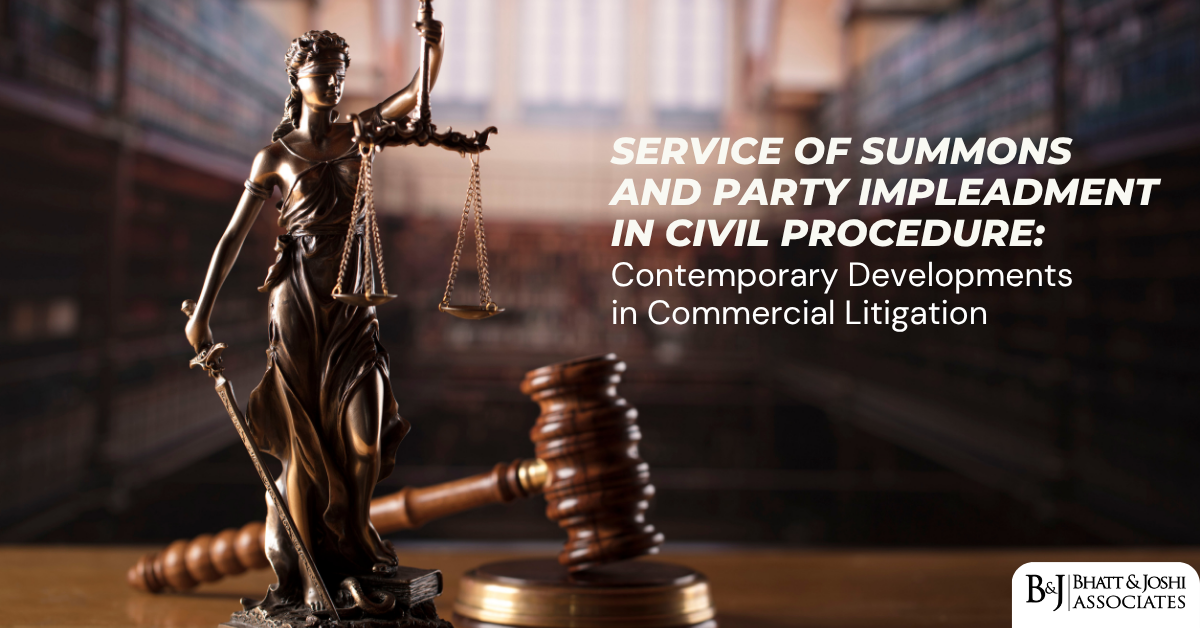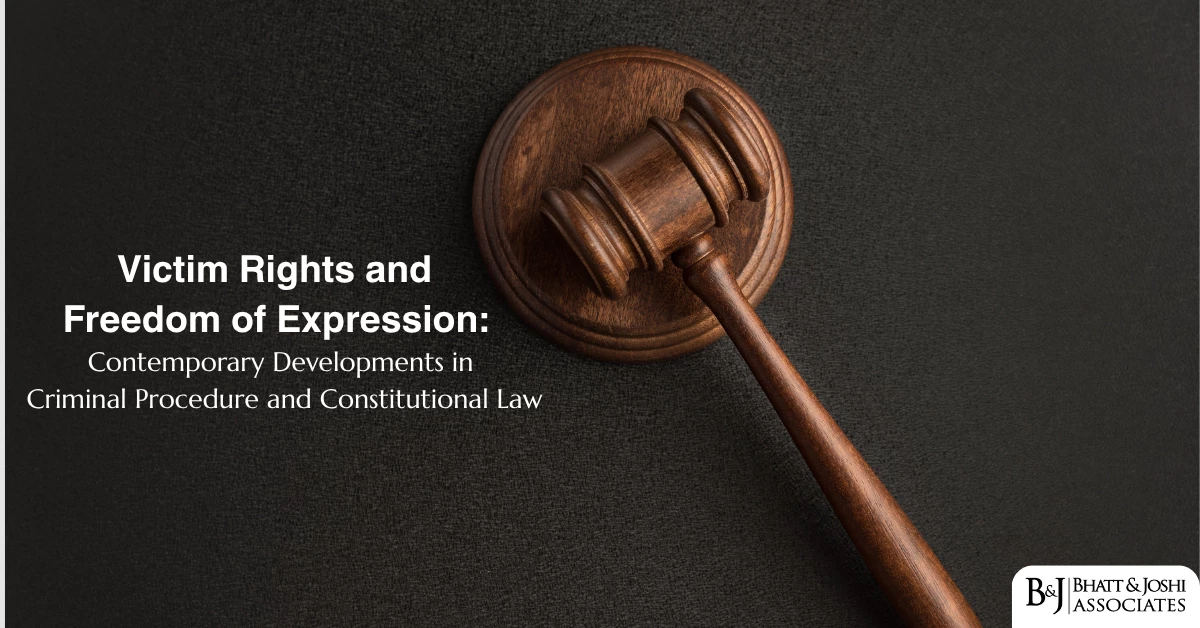Executive Summary
The Delhi High Court’s recent judgment in Indraprastha Gas Limited v. M/s Chintamani Food and Snacks, delivered by Justice Sachin Datta, has provided crucial clarity on the limited scope of judicial intervention under Section 11 of the Arbitration and Conciliation Act, 1996 [1]. This landmark decision reinforces the fundamental principle that courts must confine their examination to the prima facie existence of arbitration agreements during Section 11 proceedings, leaving complex interpretative questions regarding applicability and validity to be determined by arbitral tribunals.
The judgment, arising from a commercial dispute over a Gas Supply Agreement (GSA), demonstrates the continuing evolution of Indian arbitration jurisprudence toward minimal judicial interference and maximum arbitral autonomy. By ruling that contentions regarding the applicability or relevance of arbitration agreements must be decided by arbitrators rather than courts during Section 11 proceedings, the Delhi High Court has aligned itself with recent Supreme Court precedents emphasizing the doctrine of kompetenz-kompetenz and the principle of separability of arbitration clauses [2].
This decision has significant implications for commercial arbitration practice in India, particularly in cases involving complex contractual relationships where parties may challenge the continued applicability of arbitration clauses due to changed circumstances or contractual modifications.
Legal Framework and Statutory Provisions
Section 11 of the Arbitration and Conciliation Act, 1996
Section 11 of the Arbitration and Conciliation Act, 1996 provides the mechanism for judicial appointment of arbitrators when parties are unable to constitute an arbitral tribunal in accordance with their agreed procedure. The provision has undergone significant amendments, most notably the insertion of Section 11(6A) in 2015, which explicitly limited the court’s examination to the “existence of an arbitration agreement” [3].
The legislative intent behind Section 11(6A) was to curtail extensive judicial intervention that had previously characterized arbitrator appointment proceedings. Prior to this amendment, courts exercised broad discretionary powers to examine preliminary issues including validity, scope, and enforceability of arbitration agreements, often leading to protracted pre-arbitral litigation that defeated the fundamental purpose of expeditious dispute resolution through arbitration.
The current framework requires courts to adopt a minimalist approach, examining only whether an arbitration agreement exists prima facie between the parties. This threshold test is deliberately set low to ensure that doubtful cases are referred to arbitration rather than being decided summarily by courts, thereby preserving the parties’ autonomy to resolve disputes through their chosen mechanism.
Prima Facie Standard Under Section 11
The concept of “prima facie existence” under Section 11 has been refined through extensive judicial interpretation. The Supreme Court in various decisions has clarified that this standard requires courts to examine whether, on the face of the documents, an arbitration agreement appears to exist between the parties without delving into complex questions of interpretation or validity [4].
This prima facie standard serves multiple purposes: it prevents courts from conducting mini-trials on arbitrability at the threshold stage, it preserves arbitral jurisdiction over complex interpretative questions, it reduces pre-arbitral delays and costs, and it maintains consistency with international arbitration practice emphasizing tribunal autonomy.
The Delhi High Court’s decision in the Indraprastha Gas case exemplifies the proper application of this standard, where the court acknowledged the existence of the arbitration clause in the GSA without examining the respondent’s arguments about changed circumstances affecting its applicability.
Doctrine of Kompetenz-Kompetenz
The principle of kompetenz-kompetenz, fundamental to modern arbitration law, empowers arbitral tribunals to determine their own jurisdiction including questions regarding the existence, validity, and scope of arbitration agreements. This doctrine, recognized in Article 16 of the UNCITRAL Model Law, has been gradually incorporated into Indian arbitration jurisprudence through judicial interpretation [5].
The Delhi High Court’s decision strengthens the application of this doctrine by clearly demarcating the boundaries between judicial and arbitral jurisdiction. By ruling that applicability questions must be decided by arbitrators, the court has reinforced the principle that tribunals are best placed to examine complex contractual interpretation issues that affect their jurisdiction.
Factual Background of the Case
The Gas Supply Agreement
The dispute in Indraprastha Gas Limited v. M/s Chintamani Food and Snacks arose from a Gas Supply Agreement dated March 5, 2018, executed between Indraprastha Gas Limited (IGL) and M/s Chintamani Food and Snacks for the supply of Piped Natural Gas (PNG). The agreement contained a comprehensive arbitration clause under Article 23, which provided the framework for resolving disputes arising from or in connection with the contract [6].
The factual matrix reveals the complexity of modern commercial relationships and the potential for disputes to arise from changing business circumstances. From the commencement of PNG supply on August 25, 2012, until October 2020, the respondent operated under a post-paid gas supply model. However, in October 2020, there was a significant change when the respondent switched to a prepaid gas service plan, fundamentally altering the commercial relationship between the parties.
The Billing Dispute
The core dispute emerged from alleged undercharging during the transition period. IGL contended that the respondent was undercharged due to an outdated tariff rate that was not updated by AIUT Technologies LLP, IGL’s service agency. This technical oversight resulted in an outstanding amount of ₹3,50,638.33 for the period from July to December 2022, which the respondent disputed and denied liability for.
The respondent’s denial of liability and subsequent invocation of the arbitration clause by IGL created the jurisdictional question that came before the Delhi High Court. The respondent’s primary contention was that the arbitration clause had become inapplicable once they transitioned to a prepaid customer, fundamentally challenging the continued relevance of the original contractual dispute resolution mechanism.
Procedural History
Following the respondent’s denial of liability, IGL filed a petition under Section 11 of the Arbitration and Conciliation Act, 1996, seeking constitution of an arbitral tribunal. The respondent opposed this petition on the ground that the arbitration clause contained in the GSA was no longer applicable to their commercial relationship following the change to prepaid service.
This opposition raised fundamental questions about the survival and applicability of arbitration clauses in evolving commercial relationships, issues that required careful judicial consideration of the appropriate forum for resolving such complex interpretative questions.
Delhi High Court’s Analysis and Legal Reasoning
Existence vs. Applicability Distinction
Justice Sachin Datta’s judgment makes a crucial distinction between the existence of an arbitration agreement and its applicability to specific disputes. The court emphasized that while the execution of the GSA was undisputed and the agreement admittedly contained an arbitration clause, questions regarding its applicability involve interpretation and adjudication best left to the arbitral tribunal [7].
This distinction is fundamental to understanding the limited scope of Section 11 proceedings. The court noted that determining whether the GSA ceased to apply after the respondent became a prepaid customer requires interpretation of the contract and constitutes an “adjudicatory exercise” that falls within the exclusive domain of the arbitral tribunal.
The judgment reflects a sophisticated understanding of the different levels of inquiry involved in arbitration proceedings: threshold questions of existence suitable for summary determination by courts, and substantive questions of interpretation requiring detailed adjudication by specialized arbitral tribunals.
Reliance on Supreme Court Precedents
The Delhi High Court grounded its decision in recent Supreme Court jurisprudence, particularly the landmark decisions in In Re: Interplay between Arbitration Agreements and Indian Stamp Act (2023) and SBI General Insurance Co. Ltd. v. Krish Spinning (2024 INSC 532). These precedents established clear parameters for judicial intervention under Section 11, emphasizing that referral courts must only ascertain the prima facie existence of arbitration agreements [8].
The court’s reliance on SBI General Insurance v. Krish Spinning is particularly significant as this decision comprehensively analyzed the scope of Section 11 proceedings and reaffirmed the limited nature of judicial scrutiny at the referral stage. The Supreme Court in that case held that courts must restrict their examination to the existence of arbitration agreements, leaving all other questions for arbitral determination.
Application of Separability Doctrine
The judgment implicitly applies the doctrine of separability, which treats arbitration clauses as autonomous from their host contracts. This principle ensures that arbitration agreements survive even when the underlying contract is disputed, terminated, or becomes unenforceable. By refusing to examine whether changed circumstances affected the arbitration clause’s applicability, the Delhi High Court preserved the clause’s autonomous character [9].
The separability doctrine serves important policy objectives in commercial arbitration: it prevents parties from avoiding arbitration by challenging the main contract, it ensures that dispute resolution mechanisms remain available even when contractual relationships evolve, and it maintains consistency with international arbitration practice.
Appointment Procedure and CORE Judgment Impact
Invalidation of Petitioner-Controlled Appointment
A significant aspect of the Delhi High Court’s decision concerned the arbitrator appointment procedure specified in the GSA. The original agreement allowed the petitioner to nominate arbitrators from a panel of three persons chosen by IGL. However, the court declared this procedure invalid in light of the Supreme Court’s judgment in Central Organisation for Railway Electrification v. ECI SPIC SMO MCML (JV) (2024) [10].
The CORE judgment established important principles regarding arbitrator independence and impartiality, ruling that appointment procedures that give one party unilateral control over arbitrator selection violate fundamental principles of natural justice and arbitral fairness. The Supreme Court emphasized that arbitrator appointment must be genuinely independent to ensure procedural fairness and maintain confidence in the arbitral process.
Court’s Appointment of Independent Arbitrator
Following the invalidation of the contractual appointment procedure, the Delhi High Court exercised its statutory power under Section 11 to appoint Mr. Anant Vijay Palli, Senior Advocate, as the sole arbitrator. This appointment exemplifies the court’s residual role in ensuring that arbitration proceedings can commence despite defective contractual procedures [11].
The court’s appointment process demonstrates the balance between party autonomy and judicial intervention in arbitration. While courts generally respect parties’ agreed procedures, they retain supervisory jurisdiction to ensure that such procedures comply with fundamental principles of fairness and independence.
Preservation of Respondent’s Rights
The judgment carefully preserved the respondent’s right to raise jurisdictional objections before the appointed arbitrator. Justice Sachin Datta explicitly stated that “the respondent is at liberty to raise objections regarding jurisdiction or arbitrability before the learned Sole Arbitrator. All rights and contentions are reserved” [12].
This preservation of rights reflects the court’s understanding that referral orders do not prejudice substantive arguments regarding arbitral jurisdiction. Parties retain full rights to challenge tribunal jurisdiction through appropriate procedures, ensuring that expedited referral does not compromise procedural fairness.
Comparative Analysis with Recent Supreme Court Jurisprudence
SBI General Insurance Co. Ltd. v. Krish Spinning (2024)
The Delhi High Court’s decision aligns closely with the Supreme Court’s comprehensive analysis in SBI General Insurance Co. Ltd. v. Krish Spinning, which addressed similar questions about the scope of Section 11 proceedings. The Supreme Court in that case established that courts must limit their examination to the prima facie existence of arbitration agreements, leaving complex questions of accord and satisfaction, validity, and applicability to arbitral tribunals [13].
The Krish Spinning decision is particularly relevant because it involved disputes over whether subsequent settlement agreements affected the applicability of arbitration clauses. The Supreme Court’s ruling that such questions require detailed adjudication by arbitral tribunals rather than summary determination by courts provides strong precedential support for the Delhi High Court’s approach.
Interplay Between Arbitration Agreements and Stamp Act (2023)
The seven-judge constitutional bench decision in In Re: Interplay between Arbitration Agreements and Indian Stamp Act represents a watershed moment in Indian arbitration law. The decision clarified fundamental questions about the relationship between arbitration agreements and other legal requirements, emphasizing the limited scope of judicial intervention under Section 11 [14].
The constitutional bench’s ruling that referral courts should focus exclusively on the existence of arbitration agreements, without examining complex questions of validity or enforceability, provides constitutional foundation for the minimalist approach adopted by the Delhi High Court.
Vidya Drolia v. Durga Trading Corporation (2021)
While the Delhi High Court did not explicitly cite Vidya Drolia, this landmark Supreme Court decision provides important context for understanding the evolution of Section 11 jurisprudence. Vidya Drolia established parameters for when courts may examine arbitrability questions at the referral stage, emphasizing that such examination should be limited to exceptional circumstances involving manifestly non-arbitrable disputes [15].
The Delhi High Court’s approach is consistent with Vidya Drolia’s emphasis on minimal judicial intervention, focusing on existence rather than complex questions of scope or applicability that require detailed consideration.
Implications for Commercial Arbitration Practice
Reduced Pre-Arbitral Litigation
The Delhi High Court’s decision contributes to the broader judicial trend toward reducing pre-arbitral litigation by limiting the scope of Section 11 proceedings. By clearly stating that applicability questions must be decided by arbitrators, the court has reduced incentives for parties to raise complex interpretative arguments as threshold objections to arbitration [16].
This reduction in pre-arbitral litigation serves several important policy objectives: it accelerates the commencement of arbitral proceedings, it reduces costs associated with threshold disputes, it preserves arbitral jurisdiction over complex questions, and it maintains consistency with international best practices.
Enhanced Arbitral Autonomy
The judgment strengthens arbitral autonomy by recognizing that tribunals are better positioned than courts to examine complex contractual interpretation questions. This recognition reflects growing judicial confidence in arbitral expertise and willingness to defer to specialized adjudicatory mechanisms for technical commercial disputes.
Enhanced arbitral autonomy promotes several benefits: it ensures that disputes are decided by experts familiar with commercial practices, it allows for more flexible and efficient dispute resolution procedures, it reduces judicial workload in complex commercial matters, and it maintains consistency with international arbitration principles.
Clarity for Contractual Drafting
The decision provides important guidance for commercial lawyers drafting arbitration clauses and dispute resolution provisions. The clear demarcation between existence and applicability questions helps practitioners understand what issues may be challenged at the referral stage versus those that must await arbitral determination.
This clarity enables more informed strategic decisions about dispute resolution, including when to challenge arbitral jurisdiction, how to structure settlement negotiations, and what arguments to preserve for arbitral proceedings rather than preliminary court challenges.
Procedural Considerations and Best Practices
Strategic Implications for Respondents
The Delhi High Court’s decision significantly impacts strategic considerations for parties opposing arbitration referrals. The ruling makes clear that complex arguments about changed circumstances, contractual evolution, or conditional applicability of arbitration clauses will not prevent referral to arbitration under Section 11 proceedings.
Respondents opposing arbitration must now focus their Section 11 arguments on fundamental questions of existence rather than sophisticated interpretative challenges. This shift requires different legal strategies and may influence decisions about whether to oppose referrals or preserve arguments for arbitral proceedings.
Efficient Case Management
The judgment promotes efficient case management by reducing the scope for prolonged threshold disputes in Section 11 proceedings. Courts can now dispose of referral applications more expeditiously by focusing exclusively on existence questions rather than engaging with complex contractual interpretation arguments.
This efficiency serves broader systemic goals of reducing court backlogs, accelerating dispute resolution, and maintaining India’s attractiveness as an arbitration seat for international and domestic commercial disputes.
Preservation of Due Process Rights
Despite emphasizing expedited referral, the Delhi High Court carefully preserved due process rights by ensuring that respondents retain full rights to challenge arbitral jurisdiction before the appointed tribunal. This balance between efficiency and fairness reflects sophisticated understanding of arbitration procedure and constitutional requirements.
International Perspectives and Comparative Analysis
UNCITRAL Model Law Compliance
The Delhi High Court’s approach aligns with international best practices embodied in the UNCITRAL Model Law on International Commercial Arbitration. Article 8 of the Model Law requires courts to refer parties to arbitration unless the arbitration agreement is “null and void, inoperative or incapable of being performed,” establishing a similar low threshold for referral [17].
The Model Law’s approach emphasizes judicial restraint and arbitral autonomy, principles that are reflected in the Delhi High Court’s decision to limit its examination to existence questions while leaving complex interpretative issues to arbitral tribunals.
English Arbitration Act Comparison
The English Arbitration Act 1996 provides useful comparative context for understanding the Delhi High Court’s approach. Section 9 of the English Act establishes a similar framework for judicial referral to arbitration, with courts required to grant stay applications unless satisfied that the arbitration agreement is “null and void, inoperative or incapable of being performed.”
English courts have developed sophisticated jurisprudence around these threshold requirements, generally adopting a restrictive approach that favors referral to arbitration except in clear cases of invalidity. The Delhi High Court’s approach reflects similar judicial philosophy emphasizing arbitral autonomy.
Singapore International Arbitration Centre Practice
Singapore’s approach to arbitration referrals provides another relevant comparison point. The Singapore International Arbitration Act similarly limits judicial intervention at the referral stage, with courts required to refer disputes to arbitration unless there are compelling reasons to conclude that no valid arbitration agreement exists.
Singapore’s success as an international arbitration hub partly reflects its judicial system’s restraint in arbitration matters and willingness to defer to arbitral expertise. The Delhi High Court’s decision contributes to similar institutional development in India.
Future Developments and Legislative Considerations
Potential Impact of Arbitration Amendment Bill
The Arbitration and Conciliation (Amendment) Bill, 2018, which remains under legislative consideration, proposes significant changes to the appointment process under Section 11. The Bill contemplates greater reliance on institutional appointments and reduced judicial involvement in arbitrator selection [18].
The Delhi High Court’s decision demonstrates judicial readiness to embrace reduced intervention even under the current statutory framework, potentially easing the transition to more institutional approaches contemplated by proposed amendments.
Development of Institutional Arbitration
The judgment’s emphasis on expedited referral and minimal judicial intervention supports the broader policy goal of developing institutional arbitration in India. By reducing delays and costs associated with court-based appointment procedures, the decision encourages parties to consider institutional alternatives that may offer more efficient appointment mechanisms.
The Delhi International Arbitration Centre (DIAC), under whose rules the appointed arbitration will proceed, represents the type of institutional development that benefits from reduced judicial intervention in threshold questions.
Capacity Building for Commercial Courts
The decision highlights the need for specialized training and capacity building for judges hearing commercial arbitration matters. The sophisticated distinction between existence and applicability questions requires judicial understanding of arbitration principles and international best practices.
Continued judicial education and training programs will be essential to ensure consistent application of the principles established in this decision across different courts and jurisdictions.
Challenges and Potential Concerns
Risk of Frivolous Arbitrations
Critics might argue that limiting judicial scrutiny under Section 11 could lead to frivolous arbitrations where parties invoke arbitration clauses despite clear inapplicability. However, this concern is addressed by the availability of jurisdictional challenges before arbitral tribunals and subsequent judicial review under Section 34.
The multi-layered review process ensures that inappropriate arbitrations can be terminated at the appropriate stage without requiring extensive judicial intervention at the threshold.
Balancing Speed and Accuracy
The emphasis on expedited referral must be balanced against the need for accurate determination of arbitral jurisdiction. The Delhi High Court’s approach reflects a policy choice to err on the side of referral rather than summary dismissal, relying on arbitral tribunals to provide more detailed and accurate jurisdictional determinations.
This balance reflects broader policy preferences for arbitral autonomy and party choice in dispute resolution mechanisms.
Ensuring Arbitral Competence
The success of the Delhi High Court’s approach depends partly on the competence and expertise of arbitral tribunals to handle complex jurisdictional questions. Continued development of arbitral expertise and training programs will be essential to support the expanded role contemplated by this decision.
Recommendations for Practitioners
Drafting Arbitration Clauses
Commercial lawyers should ensure that arbitration clauses are drafted with sufficient clarity to minimize threshold disputes about existence while preserving necessary flexibility for complex commercial relationships. Key considerations include defining the scope of arbitrable disputes, specifying appointment procedures that comply with independence requirements, including provisions for institutional administration where appropriate, and addressing potential conflicts with other dispute resolution mechanisms.
Strategic Litigation Decisions
Practitioners representing parties in Section 11 proceedings should focus their arguments on fundamental questions of existence rather than complex interpretative challenges that are more appropriately addressed by arbitral tribunals. This strategic shift requires careful analysis of what arguments are likely to succeed at the referral stage versus those that should be preserved for arbitral proceedings.
Client Counseling and Expectations Management
The decision’s implications should be clearly communicated to commercial clients to ensure realistic expectations about the scope of judicial intervention in arbitration matters. Clients should understand that complex disputes about arbitration clause applicability will likely proceed to arbitral determination rather than being resolved summarily by courts.
Conclusion
The Delhi High Court’s decision in Indraprastha Gas Limited v. M/s Chintamani Food and Snacks represents a significant contribution to the evolution of Indian arbitration jurisprudence toward minimal judicial intervention and maximum arbitral autonomy. By clearly establishing that questions of arbitration clause applicability must be decided by arbitrators rather than courts during Section 11 proceedings, Justice Sachin Datta has provided important clarity for commercial arbitration practice.
The judgment’s emphasis on the distinction between existence and applicability questions reflects sophisticated understanding of modern arbitration principles and aligns Indian practice with international best practices. The decision strengthens the doctrine of kompetenz-kompetenz while preserving necessary judicial oversight through appropriate procedural safeguards.
The ruling’s practical implications extend beyond the immediate parties to influence broader patterns of commercial dispute resolution in India. By reducing incentives for threshold challenges and promoting expedited referral to arbitration, the decision enhances the effectiveness of Section 11 proceedings and contributes to India’s development as an arbitration-friendly jurisdiction capable of handling complex commercial disputes efficiently and fairly.
The careful balance struck between judicial restraint and procedural fairness demonstrates the maturity of Indian arbitration law and its continued evolution toward international standards. As India continues to develop its arbitration infrastructure and expertise, decisions like this provide essential foundation for building confidence among domestic and international commercial parties in India’s dispute resolution capabilities.
Looking forward, the decision’s principles should guide the continued development of arbitration law and practice in India, with Section 11 proceedings serving as a critical gateway to arbitral justice. The judgment represents not merely a technical ruling but a meaningful contribution to India’s emergence as a significant player in international commercial arbitration.
References
[1] Indraprastha Gas Limited v. M/s Chintamani Food and Snacks, ARB.P. 355/2024, Delhi High Court. Available at: https://www.livelaw.in/arbitration-cases/delhi-high-court-appoints-sole-arbitrator-gas-supply-dispute-invalidates-previous-arbitration-clause-in-view-of-core-judgment-277613
[2] Section 11, Arbitration and Conciliation Act, 1996. Available at: https://www.drishtijudiciary.com/current-affairs/section-11-of-the-arbitration-&-conciliation-act-1996
[3] Section 11(6A), Arbitration and Conciliation Act, 1996 (Amendment 2015). Available at: https://www.lexology.com/library/detail.aspx?g=80d1bbf0-c3d2-458b-bcd9-38c7c658fdfc
[4] Prima facie standard under Section 11. Available at: https://disputeresolution.cyrilamarchandblogs.com/2024/09/novation-of-contract-and-section-11-of-the-arbitration-and-conciliation-act-1996/
[5] Doctrine of Kompetenz-Kompetenz in Indian Arbitration. Available at: https://arbitrationblog.kluwerarbitration.com/2021/04/15/the-anomalous-case-of-sections-8-and-11-of-indias-arbitration-and-conciliation-act-1996/
[6] Gas Supply Agreement factual background. Available at: https://www.livelaw.in/high-court/delhi-high-court/delhi-high-court-monthly-digest-december-2024-citations-1305-1394-279601
[7] Delhi High Court’s distinction between existence and applicability. Available at: https://indiacorplaw.in/2024/11/26/supreme-court-clarifies-the-scope-of-section-11-of-the-arbitration-and-conciliation-act-1996/
[8] SBI General Insurance Co. Ltd. v. Krish Spinning, 2024 INSC 532. Available at: https://www.verdictum.in/court-updates/supreme-court/2024-insc-532-sbi-general-insurance-co-ltd-vs-krish-spinning-arbitration-1544556
[9] Separability doctrine in arbitration agreements. Available at: https://jgu.edu.in/mappingADR/the-story-behind-section-116a-of-the-arbitration-and-conciliation-act-1996/
[10] Central Organisation for Railway Electrification v. ECI SPIC SMO MCML (JV), 2024. Available at: https://jgu.edu.in/mappingADR/the-unresolved-conundrum-of-section-11-of-the-arbitration-and-conciliation-act-1996/
[11] Court appointment of independent arbitrator. Available at: https://arbitrationblog.kluwerarbitration.com/2018/12/27/proposed-repeal-of-section-11-6a-of-the-arbitration-and-conciliation-act-1996-who-decides-the-question-of-existence-of-an-arbitration-agreement/
[12] Preservation of respondent’s rights quote. Available at: https://www.livelaw.in/arbitration-cases/delhi-high-court-appoints-sole-arbitrator-gas-supply-dispute-invalidates-previous-arbitration-clause-in-view-of-core-judgment-277613
[13] SBI General Insurance detailed analysis. Available at: https://indiankanoon.org/doc/171443079/
[14] Interplay Between Arbitration Agreements and Stamp Act (2023). Available at: https://www.acmlegal.org/blog/supreme-courts-stand-on-arbitration-post-full-and-final-settlement/
[15] Vidya Drolia v. Durga Trading Corporation principles. Available at: https://www.lexology.com/library/detail.aspx?g=c6e8b59f-9f16-41e7-a1b4-586b883ae749
PDF Links to Full Judgement
- https://bhattandjoshiassociates.s3.ap-south-1.amazonaws.com/judgements/Indraprastha_Gas_Limited_vs_M_S_Chintamani_Food_And_Snacks_on_23_August_2024.PDF
- https://bhattandjoshiassociates.s3.ap-south-1.amazonaws.com/judgements/a1996-26.pdf
- https://bhattandjoshiassociates.s3.ap-south-1.amazonaws.com/judgements/Sbi_General_Insurance_Co_Ltd_vs_Krish_Spinning_on_18_July_2024.PDF













